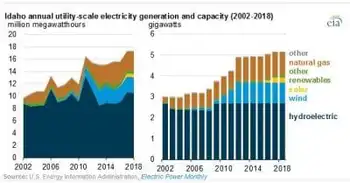Biomass headed for Atikokan coal generation station
By Canada News Wire
Substation Relay Protection Training
Our customized live online or in‑person group training can be delivered to your staff at your location.

- Live Online
- 12 hours Instructor-led
- Group Training Available
OPG will continue to use costs of fuels, required plant modifications and construction of fuel storage and handling facilities to develop the business case for safe and efficient commercial-scale biomass electricity generation.
"OPG is continuing to move the biomass program ahead," said Chris Young, OPG's Vice President of Thermal Generation Development. "We are looking at making Atikokan Generating Station, northwest of Thunder Bay, the first coal unit we repower with biomass. Supply and price of fuel will be an important consideration in making our final decision in the coming months."
"The use of wood-based biomass as a fuel to generate electricity would help stimulate a 'made in Ontario' industry. It will also make use of existing OPG generating stations that are owned by the people of Ontario," Young said.
"We're excited to be closer today to achieving MPP Bill Mauro's vision of converting Atikokan's coal to biomass, a much more sustainable, cleaner source of fuel supply," said Brad Duguid, Minister of Energy and Infrastructure. This 'made-in-Ontario' solution will allow the forestry sector to explore new ways of doing business while contributing to an important climate change initiative."
"This is a positive step in the evolution of the Atikokan Generating Station," said Bill Mauro, MPP for Thunder Bay-Atikokan. "Hopefully this Request For Indicative Prices will yield results that allow us to move forward to conversion of the plant and the conclusion of a six year process."
In 2009 about 90 per cent of the electricity produced by OPG comes from nuclear and renewable water power sources that produce virtually no greenhouse gases. Biomass fuels will help Ontario's and OPG's transition to being a low carbon generator as it moves away from coal-fired generation.
Biomass is recognized by the United Nations Framework Convention on Climate Change as a fuel that is renewable and has climate change benefits. The wood-based biomass fuel required for Atikokan GS can take the form of forest industry by-products and harvested wood. If all of the wood needed to meet this fuel requirement came from harvested wood, it would be under 1 percent of the current allowable annual harvest in the province. Suppliers will be required to prove that biomass is being sourced from sustainable forest management practices. Participation of Aboriginal groups will be part of the submission evaluation.











